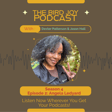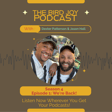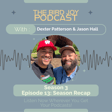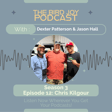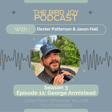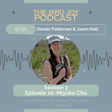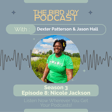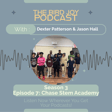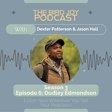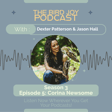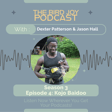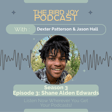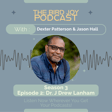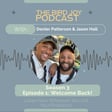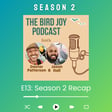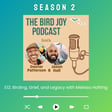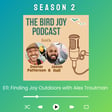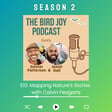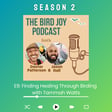
A Conversation with Christian Cooper
Join Dexter and Jason on this fantastic episode where we welcome our FIRST-ever guest on the podcast! In this episode, we are so excited to chat with best-selling author Christian Cooper about all things birding and bird joy! We cover experiences from his books, “Better Living Through Birding, Notes from a Black Man in the Natural World.”, and his amazing Emmy-winning TV show, Extraordinary Birder with Christian Cooper. How does Christian find his “bird joy”? How does he feel about the movement of many new Black and brown birders in the community to create new space? We get into all things the experience of being a birder today, some of our grounding experiences with each other on Little St. Simon’s island in Georgia, how we contextualize our own birding journeys, blushing from unsolicited compliments from folks in rainbow unicorn shirts, and even the decision by the AOS to change all eponymous bird names. Christian gave a fantastic talk at the formerly San Diego Audubon (now San Diego Bird Alliance), which covered all 12 points of opposition to #BirdNamesForBirds. We also are so honored to discuss Christian’s new book, “The Urban Owls, How Flaco and Friends Made the City Their Home” which releases on Feb 18th.
Take a listen and enjoy this special conversation with Christian Cooper!
Be sure to follow our podcast on Instagram at @thebirdjoypod and subscribe wherever you get your podcasts.
